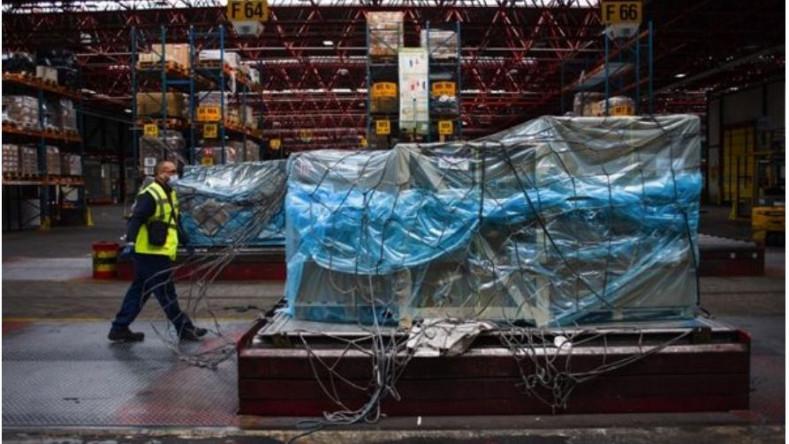NYT: Russia circumvents sanctions with help of Armenia, other countries

Late last month, American and European Union officials traded information on millions of dollars’ worth of banned technology that was slipping through the cracks of their defenses and into Russian territory.
Senior tax and trade officials noted a surge in chips and other electronic components being sold to Russia through Armenia, Kazakhstan and other countries, according to slides from the March 24 meeting obtained by The New York Times. And they shared information on the flow of eight particularly sensitive categories of chips and other electronic devices that they have deemed as critical to the development of weapons, including Russian cruise missiles that have struck Ukraine.
As Ukraine tries to repel Russia from its territory, the United States and its allies have been fighting a parallel battle to keep the chips needed for weapons systems, drones and tanks out of Russian hands.
But denying Russia access to chips has been a challenge, and the United States and Europe have not made a clear victory. While Russia’s ability to manufacture weaponry has been diminished because of Western sanctions adopted more than a year ago, the country is still gaining circuitous access to many electronic components.
The result is devastating: As the United States and the European Union rally to furnish Ukrainians with weapons to keep fighting against Russia, their own technology is being used by Russia to fight back.
American officials argue that the sweeping sanctions they have imposed in partnership with 38 other governments have severely damaged Russia’s military capacity, and raised the cost to Russia to procure the parts it needs.
There is no doubt that the trade restrictions are making it significantly harder for Russia to obtain technology that can be used on the battlefield, much of which is designed by firms in the United States and allied countries.
Direct sales of chips to Russia from the United States and its allies have plummeted to zero. U.S. officials say Russia has already blown through much of its supply of its most accurate weapons and has been forced to substitute lower-quality or counterfeit parts that make its weaponry less accurate.
But trade data shows that other countries have stepped in to provide Russia with some of what it needs. After dropping off sharply immediately after the Ukrainian invasion, Russia’s chip imports crept back up, particularly from China. Imports between October and January were 50 percent or more of median prewar levels each month, according to tracking by Silverado Policy Accelerator, a think tank.
One document marked with the seal of the U.S. Bureau of Industry and Security said that in 2022, Armenia imported 515 percent more chips and processors from the United States and 212 percent more from the European Union than in 2021. Armenia then exported 97 percent of those same products to Russia, the document said.
In another document, the Bureau of Industry and Security identified eight categories of chips and components deemed critical to Russian weapons development, including one called a field programmable gate array, which had been found in one model of Russian cruise missile, the KH-101.
 Latest news
Latest news Latest news
Latest newsSerbia’s European Integration: Prospects and Obstacles
21.Oct.2025
Ukrainian Drones Set Fire to Russia’s Largest Gas Plant, Gas Intake from Kazakhstan Suspended
20.Oct.2025
Trump and Zelensky in Washington: The Return of “Hardline Support” Policy
19.Oct.2025
Activist Margretta Mirzoyan on the Political Mood in Armenia
18.Oct.2025
Trump and Putin Prepare to Meet Ahead of Zelensky’s White House Visit: A New Phase of Diplomacy or Pressure on Kyiv?
17.Oct.2025
A Shadow over the Russian-Azerbaijani Thaw: What Lies Behind the Arrest of Former Presidential Chief of Staff Ramiz Mehdiyev?
16.Oct.2025
Russia and Syria: A New Chapter in Relations After the Coup
16.Oct.2025
NATO and EU Join Forces to Build a “Drone Wall”
15.Oct.2025
Trump: New bonds of friendship to join Armenia to Azerbaijan
14.Oct.2025
UK to lift its arms embargo on Armenia, Azerbaijan
14.Oct.2025

 25 Oct 2025
25 Oct 2025








